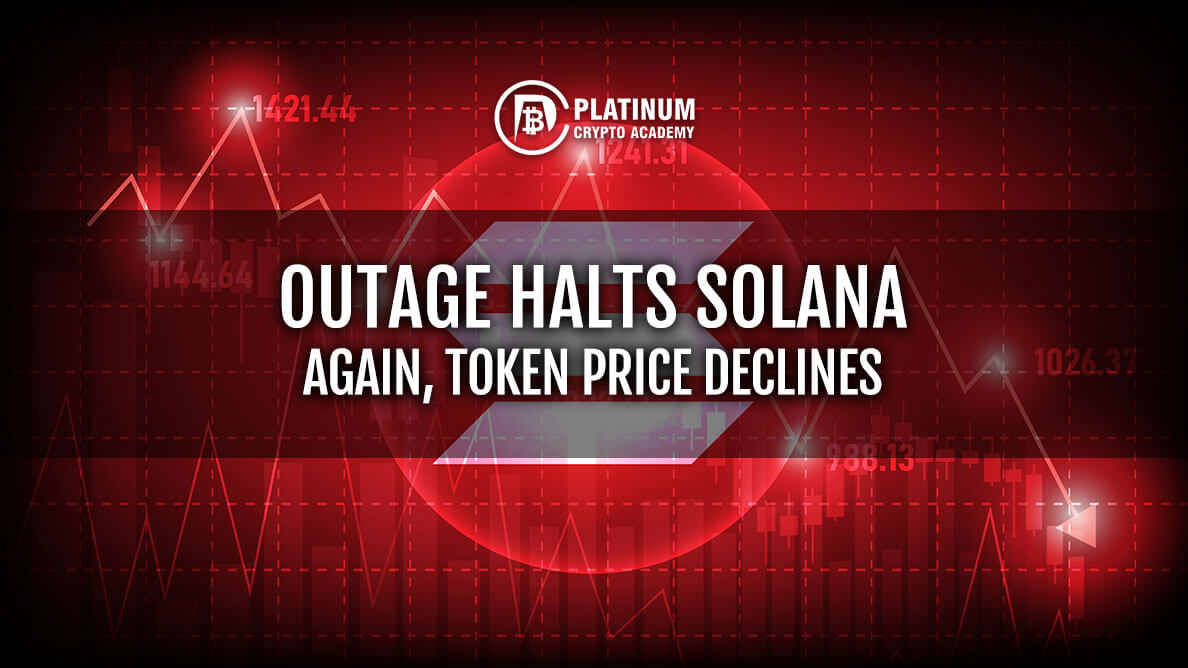The Solana network was halted for four and a half hours last week due to an outage, leading to significant drop in the price of its native and utility crypto token, $SOL. This was the latest in what appears to be a stream of outages in recent times.
Solana validators could not process new blocks for several hours due to the outage. Coinbase first reported the latest Solana outage on June 01, 2022 and said send/receives were disabled for SOL.
It also said it was investigating the issue and assured users that their funds were safe on Coinbase. A day later, Coinbase put out another status update saying the issue had been identified and fixed, while adding the functionality has been restored. Coinbase also said that it was monitoring its performance.
Post the outage, Solana tweeted that block production on Solana Mainnet Beta has halted and validators should prepare for a restart. A developer, Richard Patel, addressed the issue by explaining that chain splits occur when two parts of the same network compute a different state given to the same transactions, for any reason.
“They are a class of bug that are hard to prevent entirely even with large test coverage, and affect any chain”, the developer said, while adding that using multiple node implementations is an effective way to guard against chain split bugs, by limiting the impact of a single bug below a consensus-breaking threshold.
He, however, clarified that the above was an emergency fix for the bug and not the solution to its root cause. “It disables the feature containing the vulnerability”.
The Solana team wrote that engineers were working on a new release and transactions were temporarily halted till the patch was released. The team also ensured that the network state and funds were secure.
The previous outage occurred on May 01, 2022, when the network was halted for roughly seven hours before a successful restart. Developers explained that millions of transactions per second overloaded the platform and caused network validators to run out of memory and crash. The validators had to initiate a cluster restart to ensure all the nodes came back online.
Two weeks after the previous outage, Solana, often touted as the “Ethereum-killer”, released a significant upgrade designed to prevent the blockchain network from congestion and fix the issues for good.
Solana Labs co-founder Anatoly Yakovenko had said the upgrade was designed to tackle congestion issues and improve transaction processes on the network. He had also said the network needed time to ensure the improvement did not increase the fees for the participants.
In earlier posts on social media, Yakovenko had explained that Solana’s memory pool had a bug whereby automation bots could propose as many transactions as they wanted and a block producer had to check them all before making a block.
According to him, the update at that time allowed block producers to limit the number of transactions proposed by a bot, thereby reducing the number of transactions that needed to be verified. Solana processes an average of 2,700 transactions per second.
However, despite the upgrades, the Solana network issues continue to bother users as frequent outages prevent them from pushing their transactions through.



